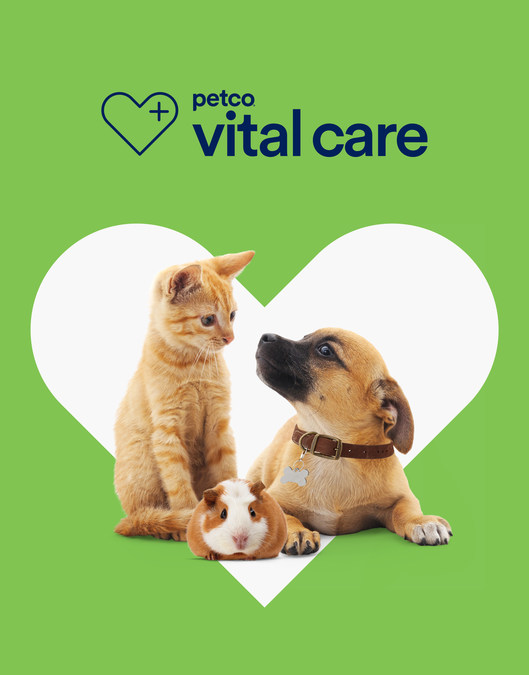Recognizing the Special Needs of Different Kinds Of Pets
Recognizing the Special Needs of Different Kinds Of Pets
Blog Article
Understanding Your Family Pets' Nutritional Demands for Optimum Well-being

Significance of Balanced Diet Regimens
Making certain a balanced diet regimen for animals is important for their general health and health. A proper diet plan not only maintains life yet likewise boosts the lifestyle by giving important nutrients that support different bodily features. Pets, like people, require a mix of healthy proteins, carbohydrates, vitamins, minerals, and fats to maintain ideal wellness. Each nutrient plays a distinctive function; healthy proteins are vital for tissue repair work and development, fats provide power and support cell feature, while carbs serve as a primary energy resource.
Incorporating a range of nutrients makes sure that family pets preserve a durable body immune system, healthy and balanced skin, and a glossy layer. A balanced diet regimen can protect against a host of health issues such as excessive weight, which is connected to diabetes mellitus and joint issues, or poor nutrition, which can lead to developing hold-ups and organ dysfunction.
Animal owners have to be conscious of part sizes and calorie intake, as overfeeding or underfeeding can have major consequences. Consulting with veterinarians or pet nutritionists can aid customize diet plans to meet certain requirements, making certain that family pets receive the suitable equilibrium of nutrients needed for their activity, age, and size level. A regular and balanced diet is indispensable for a pet dog's durability and happiness.
Species-Specific Nutritional Demands
How do various species of pet dogs have varying dietary requirements? This concern highlights the requirement for a tailored strategy to feeding our animal buddies. Each varieties possesses one-of-a-kind metabolic pathways, digestive system systems, and nutritional demands that should be satisfied for optimal health and wellness. Dogs are omnivores, needing a well balanced diet of proteins, fats, and carbs, while pet cats, as obligate predators, need a greater healthy protein consumption derived primarily from animal resources.
Birds, depending on their species, may require a diet plan abundant in bugs, fruits, or seeds, highlighting the variety within the avian globe. Pets. Reptiles, such as turtles and snakes, likewise demand species-specific diet plans, with some requiring high levels of calcium and others, a well-calibrated balance of insects and plant matter
Comprehending the nutritional differences among various species is critical for pet dog proprietors. By catering and acknowledging to these distinctions, we guarantee the stipulation of proper nourishment, sustaining the overall health and wellbeing and vitality of our animals.
Age and Size Factors To Consider
While species-specific dietary requirements lay the structure for a family pet's diet, age and size additional refine these demands. Young animals, such as puppies and kitties, call for diets rich in calories, proteins, and essential nutrients to sustain fast development and development. These young creatures have greater metabolic rates and require even more frequent feedings to maintain their power levels and guarantee appropriate development of body organs, muscles, and bones.
As animals age, their dietary demands transform significantly. Grown-up pets typically need less calories than their more youthful counterparts but still require a well balanced diet plan to keep general health and wellness and vitality. Formulas created for grown-up pet dogs usually concentrate on keeping weight, advertising digestive system wellness, and sustaining an active way of living. Alternatively, senior family pets might take advantage of specialized diet plans that address age-related challenges, such as joint health and wellness, cognitive function, and organ assistance.

Wellness Conditions and Dietary Adjustments
Particular wellness problems can substantially affect the nutritional demands of pets, requiring customized dietary changes to support their health. Family pets with diabetic issues might benefit from diet plans that are high in fiber and reduced in easy carbs to their explanation help regulate blood sugar degrees. Likewise, obese animals typically call for reduced-calorie diet plans to advertise fat burning and avoid connected health issues.
Pets with kidney condition may call for diets low in phosphorus and protein to reduce kidney workload. Omega-3 fatty acids, understood for their anti-inflammatory residential or commercial properties, can be valuable for animals struggling with problems like joint inflammation or inflammatory digestive tract illness. Furthermore, animals with food allergic reactions or intolerances could need hypoallergenic diets, typically needing a procedure of removal to recognize and leave out annoying active ingredients.
Veterinary support is critical when making nutritional changes, as wrong nutrition can exacerbate existing health and wellness issues or lead to new ones. Regular monitoring and adjustments based upon the animal's reaction to dietary changes are essential. A balanced technique, thinking about both medical and nutritional requirements, makes sure that dietary interventions add favorably to handling health and wellness conditions, enhancing not only the pet dog's health and wellness however additionally their quality of life.
Tips for Finding High Quality Animal Food
Choosing the best pet food is crucial for guaranteeing your pet's health and long life. A well balanced diet supports their immune system, keeps healthy and balanced weight and promotes total vitality. Begin by consulting your vet to recognize your pet dog's certain nutritional requirements based on type, health, and age condition.
When assessing pet dog food, inspect the ingredient list. Top notch pet foods usually note real meat, chicken, or fish as the main component. Avoid products with extreme fillers like corn, soy, or byproducts that offer minimal nutritional value. Search for natural preservatives and identifiable active ingredients as opposed to man-made ones.
Inspect for the Organization of American Feed Control Officials (AAFCO) declaration on the product packaging. This suggests the food satisfies well-known nutritional standards. Additionally, study the supplier's credibility. Brand names with a history of recalls or low quality control must be come close to with care.
Consider whether blog your pet would take advantage of unique formulations such as grain-free, high-protein, or limited-ingredient diets. These can be helpful for pet dogs with allergies or details health worries. Observe your pet dog's feedback to the food. Screen their coat problem, power degrees, and digestion to make certain the diet plan is effective.
Conclusion
A comprehensive understanding of family pets' nutritional requirements is essential for advertising their ideal wellbeing. Well balanced diet regimens customized to species-specific needs, in addition to considerations for health you can find out more and wellness, size, and age conditions, are crucial in protecting against weight problems and malnutrition. Consulting with vets is advised to ensure premium food selection that meets private nutritional needs. By sticking to these principles, pet owners can significantly add to their pet dogs' growth, energy degrees, and total health, promoting a happier and healthier life.

Choosing the right animal food is critical for guaranteeing your animal's health and durability. By sticking to these concepts, animal proprietors can considerably contribute to their pet dogs' development, power degrees, and general health, promoting a better and much healthier life.
Report this page